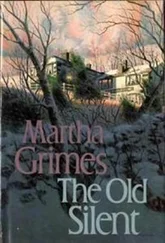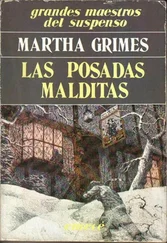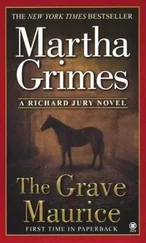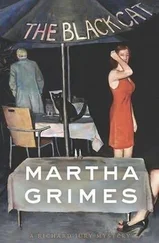Martha Grimes - The Lamorna Wink
Здесь есть возможность читать онлайн «Martha Grimes - The Lamorna Wink» весь текст электронной книги совершенно бесплатно (целиком полную версию без сокращений). В некоторых случаях можно слушать аудио, скачать через торрент в формате fb2 и присутствует краткое содержание. Жанр: Детектив, на английском языке. Описание произведения, (предисловие) а так же отзывы посетителей доступны на портале библиотеки ЛибКат.
- Название:The Lamorna Wink
- Автор:
- Жанр:
- Год:неизвестен
- ISBN:нет данных
- Рейтинг книги:5 / 5. Голосов: 1
-
Избранное:Добавить в избранное
- Отзывы:
-
Ваша оценка:
- 100
- 1
- 2
- 3
- 4
- 5
The Lamorna Wink: краткое содержание, описание и аннотация
Предлагаем к чтению аннотацию, описание, краткое содержание или предисловие (зависит от того, что написал сам автор книги «The Lamorna Wink»). Если вы не нашли необходимую информацию о книге — напишите в комментариях, мы постараемся отыскать её.
The Lamorna Wink — читать онлайн бесплатно полную книгу (весь текст) целиком
Ниже представлен текст книги, разбитый по страницам. Система сохранения места последней прочитанной страницы, позволяет с удобством читать онлайн бесплатно книгу «The Lamorna Wink», без необходимости каждый раз заново искать на чём Вы остановились. Поставьте закладку, и сможете в любой момент перейти на страницу, на которой закончили чтение.
Интервал:
Закладка:
He turned from the window in this smaller reception room and looked at the sheeted furniture, at its ghostly glimmer in what was fast becoming dusk. He moved over to an armchair, took hold of a corner of the sheet, flicked it off like a matador provoking a bull. He then went about removing the sheets from sofas and chairs, wondering where people put the laundry. At home, Ruthven and Martha took care of such things, made them disappear from sight (Melrose’s, at least) as if a party of elves had been at work while the house slept. Could he make it on his own? Perhaps he should advertise for a housekeeper. Yes, it would be good to have a housekeeper, not so much to keep house as to bring him up to speed on gossip. Although he would not have wanted anyone like Agatha’s char, Mrs. Oilings, he thought he could strike a happy medium between capable housekeeper and capable gossip.
He wondered where he should dump the sheets. He considered putting the kettle on (so nice to have all of this equipment furnished) but decided to take a long, long walk round the house before tea. It rather delighted him, too, that he could do his own tea and drink it in the living room or library with no other company than portraits and pictures of those absent.
He found himself trying to absorb what traces there were here of the lives of the Bletchleys. Maybe it was because the family depicted in those snapshots had been so beautiful-before the double tragedy-that he wished in some way he could join them.
Melrose’s memory of his own father was fitful, fluid and vague. He had not been terribly fond of him, nor had he greatly respected him. His feelings were all for his mother. The seventh Earl of Caverness had spent most of his time riding to hounds and only occasionally taking his seat in the House of Lords-with, as far as Melrose knew, no particular effect on the country or himself. He remembered a distant man, if not an absolutely cold one; Melrose had wondered, when he was old enough to wonder such things, how his mother, a very warm and loving woman, a woman who had these qualities in abundance, could be happy with him.
She had not been; she had been happy, but not with her husband. And knowing this had weighed Melrose down. He didn’t really know why.
Nicholas Grey. Melrose had deliberately distorted the image of Nicholas Grey, again without understanding exactly why. Even knowing who and what he was, Melrose still at times hated the man, saw him as an interloper in the Belgravia house. Would it have been easier to accept his mother’s affair if Grey had been a seducer, a rotter, and a layabout? And his mother a woman caught in his spell? Or was it simply that the real Nicholas Grey was none of these things but was instead the sort of man it would be difficult to live up to?
He had seen Grey several times in the Belgravia house, which Melrose had since sold. He had sold the house for that reason-it was where Nicholas Grey had come. The sale had taken place a few years after the solicitor had handed over a letter that his mother had directed be given to Melrose long enough after her death to give him time to get over the worst of it. His mother had been dead for five years when the lawyer had given him the letter. And he hadn’t gotten over it.
He returned to that letter time and again, reading it so often he had worn down the fold so the two parts barely hung together. Nicholas Grey was Irish (the letter said), and it was that which one could say killed him. He had died in Armagh in a skirmish with the IRA. He had himself at one time when he was younger been a member of it, until he finally couldn’t put up with what he felt were random and arbitrary assassinations. Grey himself had been a hot-head but not an anarchist. He was a man sublimely caught up in his cause and had the reputation of being a brilliant strategist, a matchless orator, and an inspiration to the men under him. Grey had disliked the aristocracy, not in theory but in fact; he had hated it for what it had become.
What Lady Marjorie, his mother, had done was to trade a fairly amiable and undemanding man born to wealth and leisure for one who it would be very hard for Melrose, his son, to live up to, a father who had stamped Melrose with a nearly impossible romanticism for which he could find little or no outlet.
He thought she had been wrong to tell him, and yet her motives, if clouded, had been good ones. His mind, he hoped, was large enough to allow for this. His own motives he felt were equally cloudy. He told himself that in relinquishing the title of eighth Earl of Caverness he was squaring things with his nominal father, the seventh earl. But he suspected what he was really doing was squaring things with Nicholas Grey, though he couldn’t say why.
He wondered if it was his vanity, rather than his heart, that had been bruised.
He would much rather weigh in as the real Melrose Plant than as the bogus Earl of Caverness.
13
She had said:
I make no apology for my behavior (which might strike you as arrogant and selfish), except insofar as you’re being made unhappy; I did not want you to read this until some years after my death-when you would be over the worst of it… There is so much of Nicholas in you, your looks, your moods, that it haunts me.
She was not telling him “ to unburden myself and thereby place a heavier burden on you ” but to fill in what she saw as a tremendous distance between what he, Melrose, really was and what he had to think he was, “ gentleman, an aristocrat without a past -” Melrose still wondered what she meant here-
and an uncertain future, the Earls of Caverness having been unremarkable in their lives and legacies. They were perhaps what people think of when they think of the aristocracy. You do not fit this mold and never will, I think.
Even as a child you showed no interest in aristocratic trappings. You wanted to be a “plain old fellow” (your words) and go to the local comprehensive school. Your father, of course, wouldn’t hear of it; he was, he said, “scandalized” by the very notion.
Once you went missing for a whole day and we found you in Sidbury on a picket line demanding more government subsidies for the farmers. You carried a sign you had made yourself. Every word in it was misspelled except for “the,” “and,” and “Hell.” Your father was mortified.
I asked him if it was because of the spelling.
Melrose laughed. He always did, here.
You were always “organizing.” You organized the servants, the dogs, your friends, my clothes. The servants you said could all have a better time of it if they were on strike. More money, more time off. (Ruthven told me and with a straight face that there was something in what you said. It was one of the few times Ruthven tried to be witty.)
I don’t know what you told the dogs, but I did see you outside by the hydrangea bush, lecturing them. Their behavior, however, remained pretty much the same.
You organized your school friends, and all of you marched into the kitchen at school to complain about the sticky toffee pudding. You organized me, too: my luncheons, my Women’s Reading Club, my days in London, my clothes.
You always seemed to see a world of possibilities, things that needed changing, the sort of thing the aristocracy wanted to keep at bay. Change made us anxious and uncomfortable. “We’ve got to get organized, Mum. We’ve got to get organized.”
It could still catch him unawares, this letter, the concreteness of it, which made him live these scenes over again, or the sense of loss, washing across him like those waves at the bottom of the cliff. The letter answered some questions but opened up others: Why hadn’t she divorced her husband or, at least, gone off with Nicholas Grey? He remembered her as a very independent woman. Had she been stopped by her husband’s threat to keep Melrose? She had left these important issues unexamined.
Читать дальшеИнтервал:
Закладка:
Похожие книги на «The Lamorna Wink»
Представляем Вашему вниманию похожие книги на «The Lamorna Wink» списком для выбора. Мы отобрали схожую по названию и смыслу литературу в надежде предоставить читателям больше вариантов отыскать новые, интересные, ещё непрочитанные произведения.
Обсуждение, отзывы о книге «The Lamorna Wink» и просто собственные мнения читателей. Оставьте ваши комментарии, напишите, что Вы думаете о произведении, его смысле или главных героях. Укажите что конкретно понравилось, а что нет, и почему Вы так считаете.












